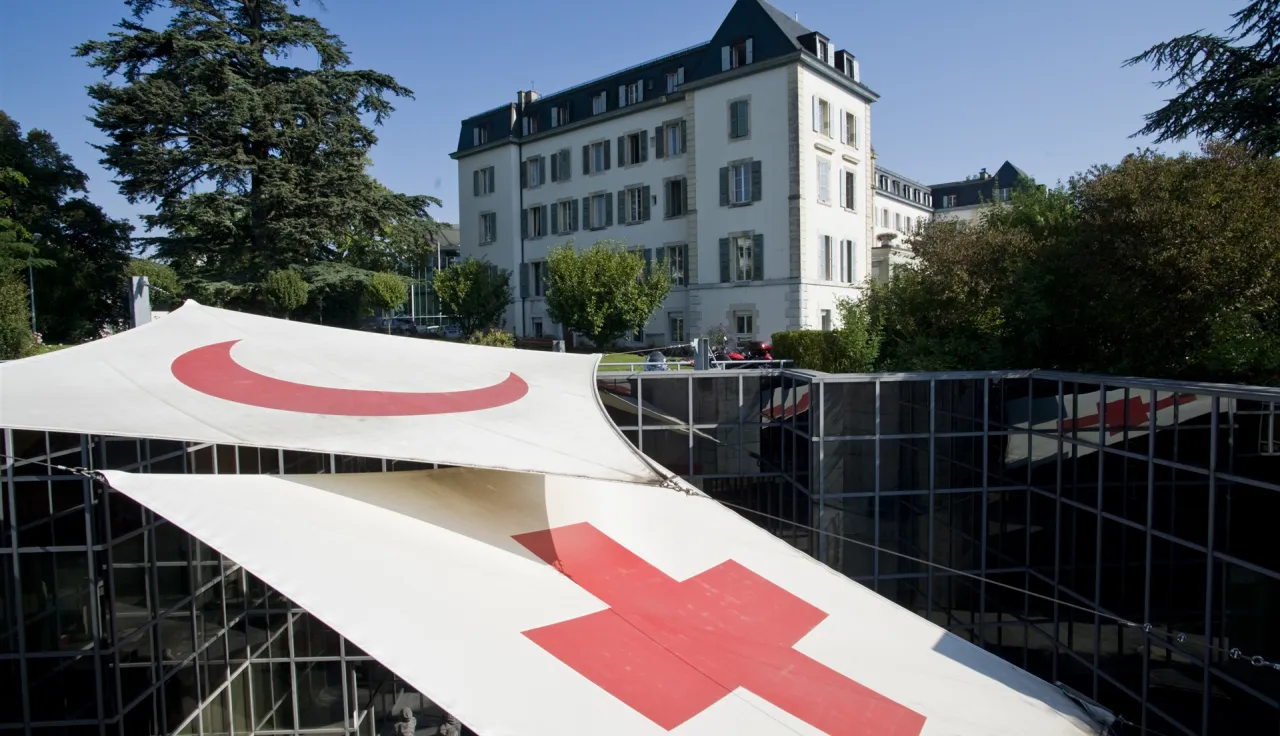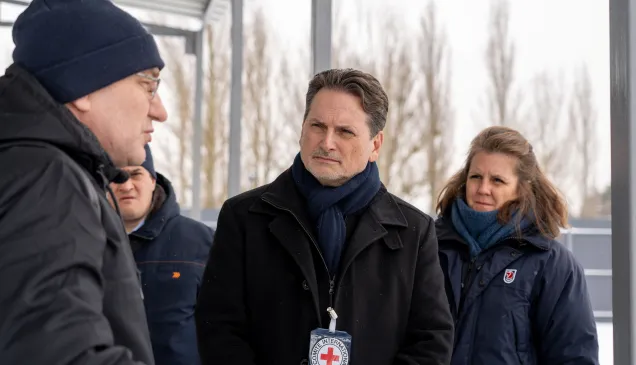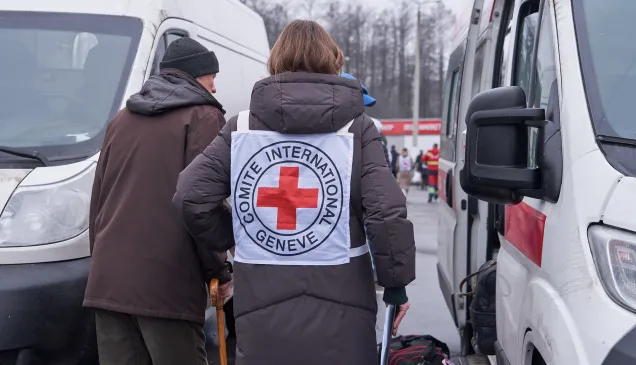Remarks delivered by the Head of CTA Bureau at the United Nations Press briefing in Geneva.

Remarks by Dusan VUJASANIN, head of the ICRC Central Tracing Agency Bureau for the international armed conflict between the Russian Federation and Ukraine at the Palais media briefing in Geneva.
Good morning. And thank you for giving me the opportunity to talk about a major humanitarian issue arising from the international armed conflict between Russia and Ukraine, which is the issue of missing persons.
Not knowing what happened to your loved ones is excruciating. Not knowing if your husband, your father, your daughter is alive, if they are in good health, hungry, cold, injured are some of the questions that tens of thousands of Russian and Ukrainian families ask themselves day and night.
Today, we, the ICRC, are looking for 23’000 persons whose families have had no news of them for months or sometimes for almost two years. The majority of these people are military personnel.
So, how do we look for these persons?
We receive information from the families concerned. We also gather information from open sources, such as Telegram channels. But what makes the bureau I’m leading unique is that we work directly with both parties to the conflict.
We act as a neutral intermediary between Russia and Ukraine, who have a legal obligation under the Geneva Conventions to share information with us about “protected persons”, meaning civilians and military, dead or alive, who have fallen into their hands. They do so through their National Information Bureaus.
The system is not perfect, but it works. As a result, we have received and continue to receive information on thousands of people, in the form of lists of names. It’s a complex process, it can be lengthy because the amount of information we collect, analyze and safeguard is huge. And because we always cross-check information, to ensure we provide families with accurate information.
Collecting, analyzing and comparing all this information is what enables us to identify what we call “positive matches”. A positive match is when we receive reliable information about a person whose family has contacted us to look for him or her. This is the case, for example, when Russia or Ukraine provides us with information on prisoners of war in their hands.
This way, we have been able to give news to 8000 families so far. We are aware that many more families are anxiously awaiting news. We are working every day to help more families and we’ll continue to do so for how long as necessary.
But at least for these 8000 families, it’s the end of a sometimes very long period of uncertainty. And for some, it’s even more than that. I remember the story of this woman we called to tell her that we had just visited her son in detention. She was very moved because she thought her son was dead.
A few words about the ICRC Central tracing agency bureau for the international armed conflict between the Russian Federation and Ukraine.
It was set up almost two years ago, in March 2022, to prevent people from going missing, from being unaccounted for. The bureau is based in Geneva (in Ecogia/Versoix since the beginning of this year) and comprises of a team of around 60 experts from 26 nationalities in fields like data management and analysis, forensic science, international humanitarian law, and so on.
As I said, we are here to support Russian and Ukrainian families, to provide them with the answers they’re eagerly awaiting. To do so, we work in close coordination with ICRC teams in Ukraine and in Russia of course, but also with Red Cross and Red Crescent national societies in some 50 countries around the world, to ensure proximity with the families affected whether they live.
You are more than welcome to visit us at Ecogia.
Thank you for your attention, and I am happy to take any questions you might have.
For more information, please contact:
Claire Aude Kaplun, ICRC CTA bureau, Geneva, tel: + 41 79 522 72 28, email ckaplun@icrc.org



